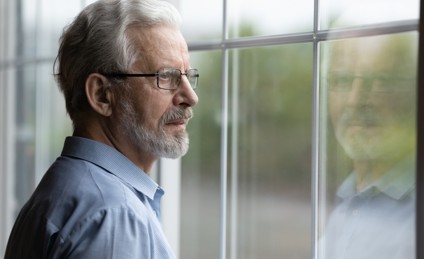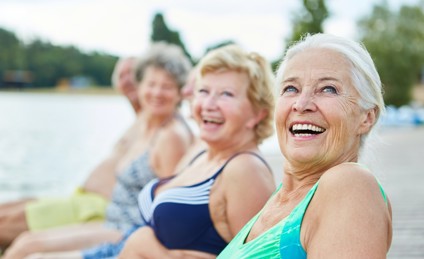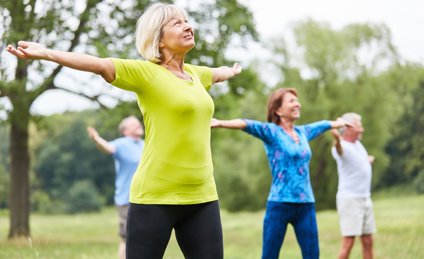Age is nothing but a number so at what point did we stop celebrating another year gone by?
Now, more than ever, there are increasing benefits to an ageing population, such as how much older people positively contribute to the wider community and help with providing care and support. According to research conducted by the Royal Institution, the older population will soon outnumber the younger, therefore it’s imperative that society starts to better understand, appreciate and cater for an ageing population.
However, in a recent report published by the Centre for Ageing Better, the charitable foundation discovered that although we are steadily shifting towards an older population worldwide, the way National Government, media, advertising and health and social care talk about older generations could be feeding and reinforcing negative stereotypes. This will likely have influence on the fact that one in three people* within the UK report they’ve experienced age prejudice or discrimination.
Unfortunately, the COVID pandemic has not helped with this type of negative stereotyping and has led to yet further discourse around vulnerability and increased support and protection for older people. Thankfully, due to the deployment of the vaccine, this issue should now be subsiding to create greater confidence for older people, in themselves, as they continue with their daily life.

Many of us are not ready to start putting on the breaks when we reach retirement age. In fact, as we’re living longer we’re also learning more and more about how to take better care of ourselves. We have a greater and increasing knowledge about how to improve our life quality as well as life expectancy through a combination of elements such as:
Healthy diets
Research shows that eating a diet high in plants and low in fat, reducing alcohol consumption and maintaining a healthy body weight (when combined with regular exercise) can extend a woman’s disease-free life expectancy beyond 50 years old by 10 years, and add 8 years more to a man’s, so eating healthy is incredibly important.
Exercise
Research suggests that 11 minutes of moderate-to-vigorous exercise each day, from a brisk walk, to playing tennis or hiking can help you live longer.
Mental wellbeing
A study shows that positive thinking can result in an 11-15% longer lifespan and greater likelihood of living to or beyond 85 years old. Wellness centres are a feature of all our communities.
Modern medicines/vaccines
Thanks to modern medicine the average life expectancy has increased from 40 years old at the start of the 19th Century to 75 years old for a man and 80 for a woman.
As we learn more about the science of ageing, we inevitably learn more about how best to avoid the mental and physical declines associated with ageing. There are many fascinating discoveries and developments within the field of genetics that can provide helpful advice and insight into how adaptions to our lifestyles can actually slow down the physical and mental effects of ageing on the body.
One of the world leaders in ageing research, David A. Sinclair, a tenured professor at Harvard Medical School, co-inventor on over 50 patents and author of best-selling book Lifespan: ‘Why We Age – and Why We Don’t Have To’, has been a guest on many podcasts recently talking about how understanding your genetic makeup can provide the key to unlocking a long and healthier life. He claims that lifespan is “80% lifestyle and 20% genetics”, which is what we, at RVG have been advocating, for the past 30 years. In addition to this, and in support of our advocating for a more community-based and socially active retirement, there’s also evidence to suggest that people who are part of larger social networks are 45% less likely to die, compared to those who live in social isolation, who are 45% more likely to become ill.
Armed with this knowledge, advancements in modern medicines and modern lifestyle technologies, ageing is less and less likely to slow us down as time progresses. Older generations will remain independent, active and valid contributors to society for longer and longer. This in turn must force a reappraisal of ageing, and the way in which it’s referred to by the key influencers in our society such as national government, media and advertisers.

Technologies to help keep up fit and active:
Health Trackers: FitBit, Garmin, AppleWatch
Nutrition Apps: My Fitness Pal, ShopWell, Pill Monitor
Fitness Apps: Map My Run, Pocket Yoga, Strava
Smart Home Technology: Amazon Echo, Google Nest
Brain Fitness: Chess – Play & Learn, Words With Friends, Word Connect
At Retirement Villages Group we’ve long held a different perception of ageing. We know that staying active, in body and mind, can help people live longer, healthier and happier lives. Feelings of inclusion, value and peace of mind help to contribute to overall wellbeing and being embraced and celebrated by your community, rather than hidden away is what will promote those feelings.
This is why we believe that retirement community living helps to support ageing populations to live life in such a way as to challenge those negative perceptions of growing older.
If you’d like to learn more about how retirement community living could benefit you, or a loved one, then please don’t hesitate to contact us. You can also join us on an open day and experience the communities for yourself, we're be delighted to meet you.
*Source: https://www.ageing-better.org.uk/sites/default/files/2020-03/Doddery-but-dear.pdf
** https://www.thehealthy.com/aging/healthy-aging/live-longer/

